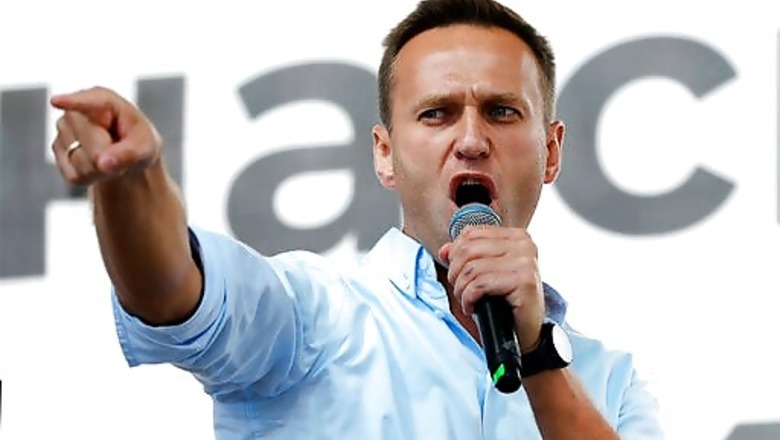
views
WASHINGTON: The top Democrat and the top Republican on the House Foreign Affairs Committee are together calling on President Donald Trump to investigate whether chemical weapons were used by Russia in the poisoning of Russian opposition leader Alexei Navalny.
Chairman Eliot Engel, D-N.Y., and Rep. Michael McCaul, R-Texas, told Trump in a letter Monday that they are deeply concerned by reports that Navalny was poisoned in August with a chemical nerve agent. The two lawmakers are pushing for a formal U.S. investigation into whether Russia violated international law or used a lethal weapon against one of its own nationals a request they say triggers a required 60-day evaluation period under U.S. chemical weapons law.
Navalny, a high-profile critic of Russian President Vladimir Putin, was flown to Germany last month after falling ill on an airplane flight in Russia. German chemical weapons experts say tests showed the 44-year-old was poisoned with a Soviet-era nerve agent.
Engel and McCaul urged Trump to enact additional sanctions on Russia if its determined that chemical weapons were used against Navalny.
Those responsible for this despicable attack must be held accountable, and Russian President Vladimir Putin must know that he and his cronies will not be allowed to violate international law with impunity, the two men wrote.
The administration has not yet responded to the request. White House press secretary Kayleigh McEnany last week called the poisoning completely reprehensible and said the U.S. was working with our allies and the international community to hold those in Russia accountable.
Navalny has been taken out of an induced coma and is improving, the German hospital treating him said Monday. Doctors said it was too soon to say what long-term effects he may have suffered.
The German authorities said last week that tests showed proof without doubt that Navalny was poisoned with a chemical nerve agent. British authorities identified the Soviet-era Novichok agent as the same poison used on former Russian spy Sergei Skripal and his daughter in England in 2018.
Germany and several other countries have called on Russia to conduct a full investigation. Russia has denied that the Kremlin was involved in poisoning Navalny and accused Germany of failing to provide evidence about the poisoning that it requested in late August.
Disclaimer: This post has been auto-published from an agency feed without any modifications to the text and has not been reviewed by an editor
















Comments
0 comment